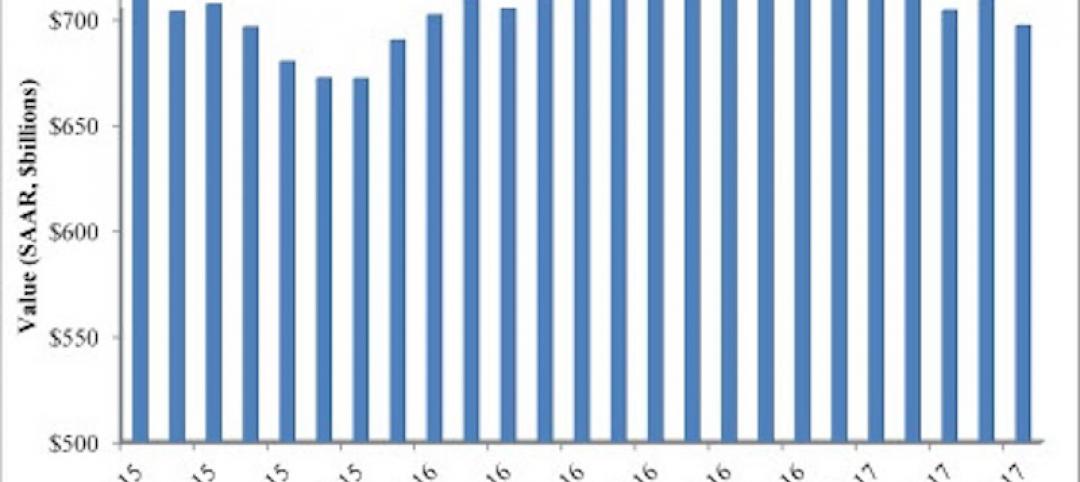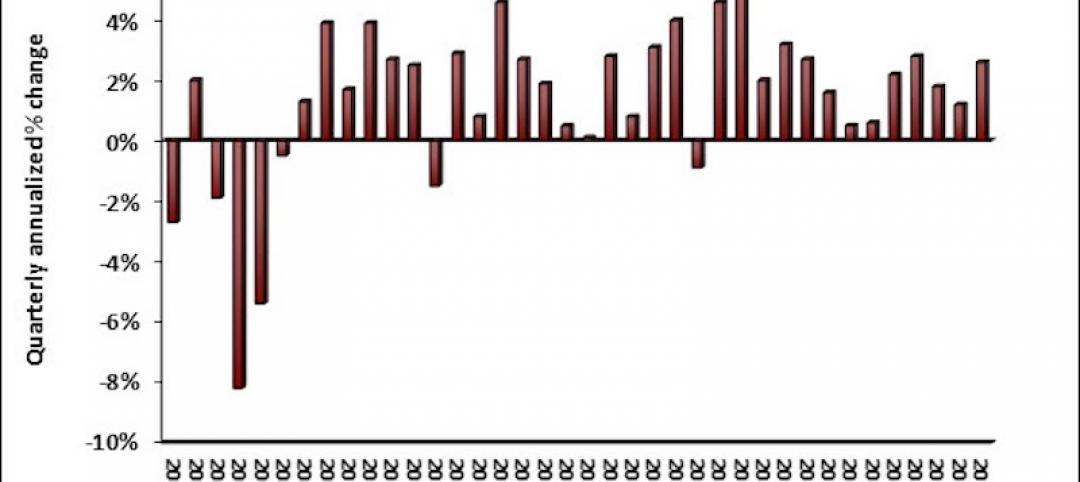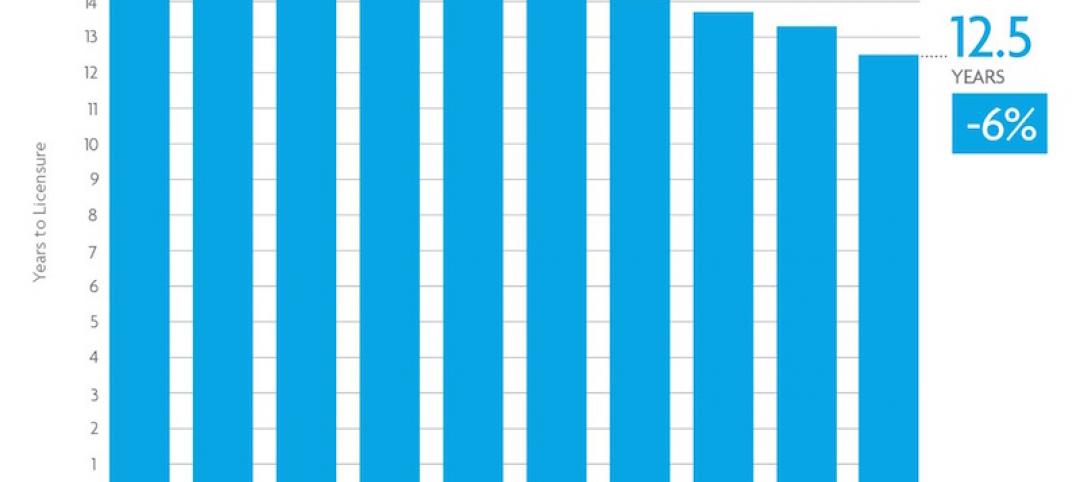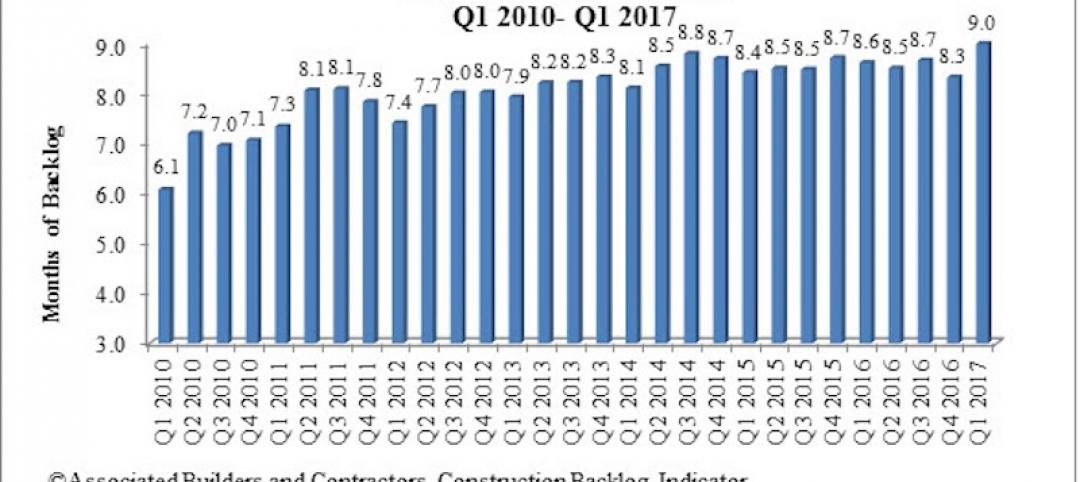Licensure candidates and new architects are more diverse than ever before, according to new data from the 2017 edition ofNCARB by the Numbers. Released annually by the National Council of Architectural Registration Boards (NCARB), the publication provides exclusive insight into the number of U.S. architects, the pool of candidates working toward licensure, and diversity in the profession.
Closing the Gender Gap
For the first time since NCARB began collecting demographics data, gender equity improved along every career stage—including gaining professional knowledge through the Architectural Experience Program™ (AXP™), starting the Architect Registration Examination® (ARE®), and earning a license.
In 2016, women accounted for 47 percent of new AXP participants and 42 percent of new ARE candidates. While women remain underrepresented among practitioners and NCARB Certificate holders, they now account for 36 percent of newly licensed architects, compared to 34 percent in the previous year. According to 2015 estimates from the U.S. Census Bureau, women make up 51 percent of the U.S. population.
Racial and Ethnic Diversity
Racial and ethnic diversity is also increasing among licensure candidates, although at a slower pace.
In 2016, 42 percent of new AXP participants and 30 percent of new ARE candidates identified as non-white—up three percentage points for both groups. However, diversity among newly licensed architects and NCARB Certificate holders remained the same. For comparison, 38 percent of the U.S. population identifies as either non-white or Hispanic, according to 2015 estimates from the U.S. Census Bureau.
“While several groups remain underrepresented within the profession, these trends point to growing diversity among licensure candidates, and eventually, future architects,” said NCARB President Kristine A. Harding, NCARB, AIA. “In response, NCARB will continue to ensure our programs balance inclusivity with the rigor needed to protect the public.”
Related Stories
Market Data | Aug 2, 2017
Nonresidential Construction Spending falls in June, driven by public sector
June’s weak construction spending report can be largely attributed to the public sector.
Market Data | Jul 31, 2017
U.S. economic growth accelerates in second quarter; Nonresidential fixed investment maintains momentum
Nonresidential fixed investment, a category of GDP embodying nonresidential construction activity, expanded at a 5.2% seasonally adjusted annual rate.
Multifamily Housing | Jul 27, 2017
Game rooms and game simulators popular amenities in multifamily developments
The number of developments providing space for physical therapy was somewhat surprising, according to a new survey.
Architects | Jul 25, 2017
AIA 2030 Commitment expands beyond 400 architecture firms
The 2016 Progress Report is now available.
Market Data | Jul 25, 2017
Moderating economic growth triggers construction forecast downgrade for 2017 and 2018
Prospects for the construction industry have weakened with developments over the first half of the year.
Industry Research | Jul 6, 2017
The four types of strategic real estate amenities
From swimming pools to pirate ships, amenities (even crazy ones) aren’t just perks, but assets to enhance performance.
Market Data | Jun 29, 2017
Silicon Valley, Long Island among the priciest places for office fitouts
Coming out on top as the most expensive market to build out an office is Silicon Valley, Calif., with an out-of-pocket cost of $199.22.
Industry Research | Jun 27, 2017
What does the client really want?
In order to deliver superior outcomes to our healthcare clients, we have to know what our clients want.
Industry Research | Jun 26, 2017
Time to earn an architecture license continues to drop
This trend is driven by candidates completing the experience and examination programs concurrently and more quickly.
Industry Research | Jun 22, 2017
ABC's Construction Backlog Indicator rebounds in 2017
The first quarter showed gains in all categories.
















